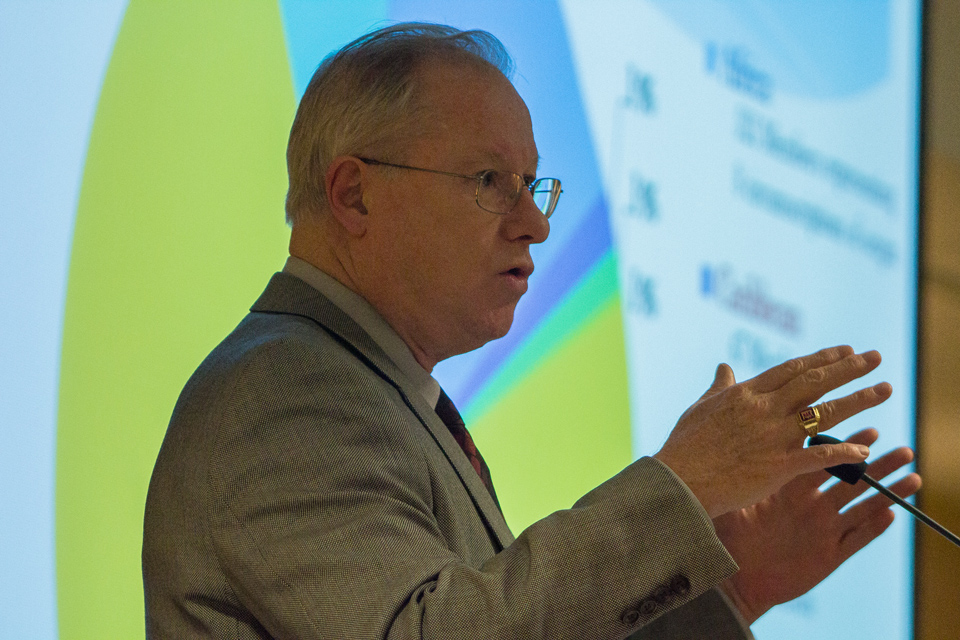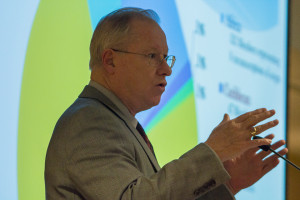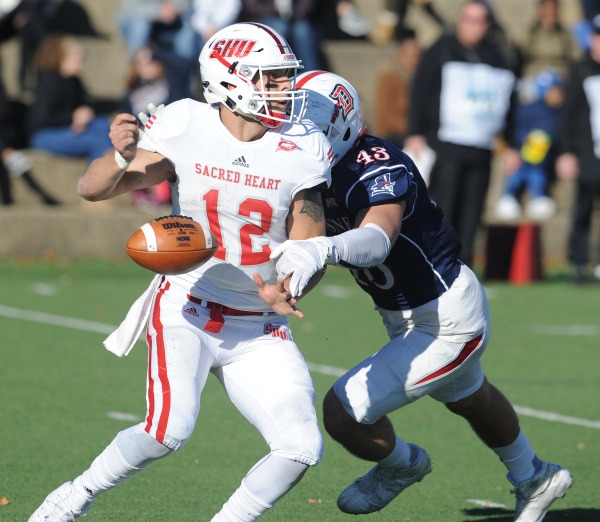

By Jill Power | The Duquesne Duke
Duquesne President Charles Dougherty discussed the possibility of expanding the University’s African studies program in a lecture Tuesday.
The lecture, titled “Duquesne and Africa: Yesterday, Today, and Tomorrow,” explored Duquesne’s budding African studies program and its importance to the University.
Dougherty discussed the history of Spiritan education at Duquesne, the growing Spiritan congregation in Africa and how the University plans to extend its involvement within the Spiritan community.
In 1980, Africa contained only 3.9 percent of the Spiritan congregation, with 146 members out of a total of 3,769 globally. By 2012, the number had risen to 1,452 members from Africa, increasing the percentage of congregants to 51 percent.
Dougherty said this shift explains Duquesne’s strong interest in pursuing African studies programs and study abroad options.
The University’s Center for African Studies currently offers a minor in African studies, but the development of a major in the same program is one of the president’s goals in the coming years.
“We are trying to work to establish additional programs and additional exchanges that will be beneficial to us,” Dougherty said.
The current minor program, which includes courses such as “human security in sub-Saharan Africa,” “approaches to black and African theologies” and “philosophy in African literature,” was introduced this past fall, and is overseen by Gerald Boodoo, acting director of the Center for African Studies.
Dougherty said the program has done “very, very well” thus far.
Deans from every school within the University are encouraged to consider a professor’s knowledge of Africa when hiring in order to attract more professors to the developing African Studies program.
“We’re always urging deans that when they see someone with a little background [in] Africa, we see that as a plus,” said Dougherty.
Additional study abroad programs to Africa are also being discussed. Roberta Aronson, the executive director of the Office of International Affairs said that the University is, “exploring the possibility of a Maymester to Ghana.”
A Duquesne affiliated semester-long study abroad program is not being pursued, but students can currently study in Accra, the capital of Ghana, in a University-approved study abroad program.
By the 1970’s, Duquesne was the only University that taught the four major African languages at the same time: Arabic, Hausa, Lingala and Swahili. This was thanks to the Duquesne University Institute of African Studies, which was established in 1958 with the help of federal funding. The organization was dissolved in 1976 due to lack of funding.
Although the University no longer teaches three out of the four aforementioned African languages, Dougherty said studying French in Africa is important.
“We need more language study in French,” he said. “Spiritans are present not only in English speaking countries [in Africa] but French speaking countries [in Africa], and they don’t want to be left out.”
The lecture was part of the newest installment of the Building Relationships with Africa Spring Seminar Series.




